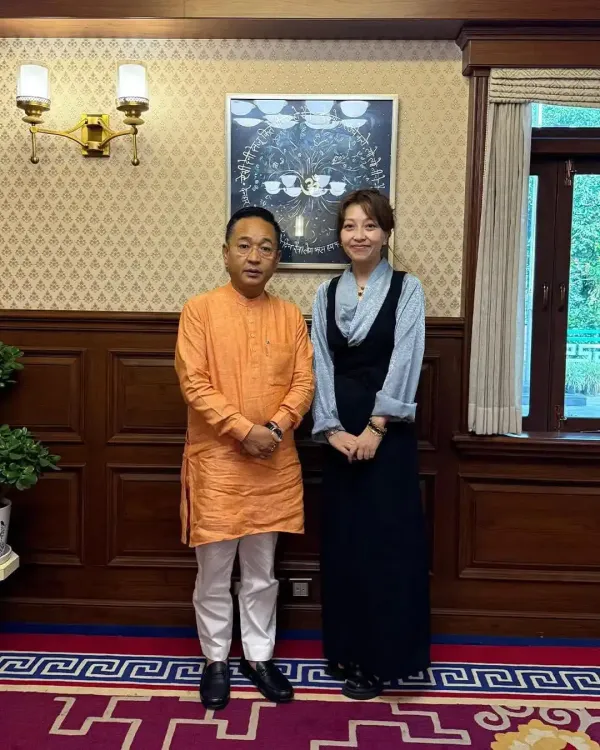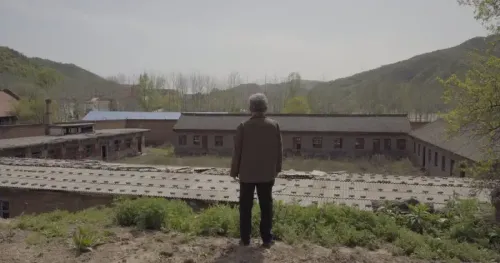How is Sikkim CM Supporting Youth-Led Education Initiatives?

Synopsis
Key Takeaways
- Support for youth-led educational reforms is strong in Sikkim.
- The Chief Minister's Mentorship Programme provides crucial support for students.
- Public-Private Partnerships are central to fostering educational innovation.
- Empowerment of youth is viewed as essential for governance and development.
- Cultural values play a key role in shaping educational initiatives.
Gangtok, July 7 (NationPress) The Chief Minister of Sikkim, Prem Singh Tamang (Golay), extended robust support for educational reforms led by youth during a recent meeting with Kunzang Choeki Bhutia, an educationist and social entrepreneur. This meeting, which took place in Gangtok, was centered around establishing sustainable partnerships aimed at the long-term development of Sikkim, particularly in education, youth empowerment, and public health.
During the discussion, Choeki informed the Chief Minister about her recent strategic meetings in Mumbai (June 29-July 5), where she engaged with prominent stakeholders, including philanthropist Khrisha Shah Ambani, to investigate Public-Private Partnership (PPP) frameworks.
These frameworks are designed to promote innovation in education, enhance women’s leadership, and encourage grassroots development, while remaining deeply rooted in the cultural heritage of Sikkim and guided by the inclusive philosophy of Vasudhaiva Kutumbakam (the world is one family).
The Chief Minister praised Choeki for her grassroots-oriented and culturally sensitive approach to reform. He remarked, “Her initiatives to link national networks with Sikkim’s ambitions embody the innovative spirit we advocate,” commending her for bridging state goals with national institutions.
Choeki plays a vital role in the Chief Minister’s Mentorship Programme, an initiative under the Education Department facilitated by her non-profit Katalytic Charter Education Foundation.
This program aids Class X students through targeted exam preparation, leadership training, and exposure to real-world challenges. With plans to broaden the program's reach, Choeki underscored the importance of incorporating critical thinking, emotional intelligence, and civic leadership into the educational framework.
“Empowering young individuals through education and real-world experiences is essential for cultivating a self-reliant Sikkim,” the Chief Minister remarked.
The dialogues in Mumbai also examined scalable PPP models aimed at enhancing women’s empowerment, strengthening health systems, and fostering localized leadership development. These initiatives form part of a comprehensive strategy to promote value-based, community-oriented growth in Sikkim, which emphasizes resilience, equity, and sustainability.
The Chief Minister particularly commended Choeki’s mentorship program for significantly enhancing student outcomes and boosting academic confidence among marginalized youth. He stated, “Building the capacity of our youth is not merely an objective; it is a fundamental principle of progressive governance.”








